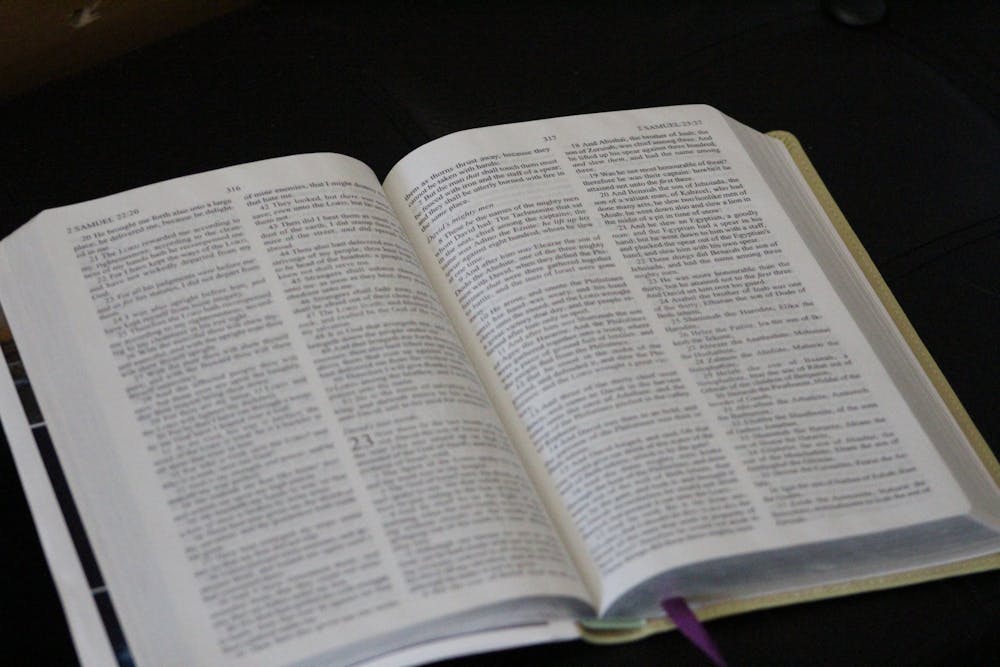“Do you have a specific Scripture reference to back that up?”
This is a phrase I have often been faced with when presenting theological arguments and one I am sure I have uttered myself in the past. However, within this phrase lies a dangerous idea which has taken root in Protestant thought: the modern usage of sola scriptura.
“(Sola scriptura) seeks to recognize God’s written revelation in the Bible as the final authority in matters of faith and practice,” said Greg MaGee, associate professor of biblical studies.
It was a rallying cry of the Protestant Reformation, intended to bring a focus back to the Scriptures. It was used as an argument against several Catholic dogmas at the time, which Protestants believed went against scriptural teaching. The Catholic Church acknowledged that traditions which go against the commands of God ought not be followed. However, Catholics do not see dogmas and traditions as being condemned by Scripture, instead believing all dogmas are supported by Scripture.
This is the primary problem with sola scriptura. Differing views on biblical interpretation will change what are seen as plain scriptural truths. The bible is gray in many areas and theologies are often based off what one believes to be objective Scripture but are, in fact, interpretations.
The idea of sola scriptura can leave interpretation up to each individual person, allowing everyone to create their own personal version of biblical truth for themselves.
“The potential danger with sola scriptura is . . . that (believers) would practice autonomous interpretation, apart from any accountability to the broader global church,” said Magee, who believes in sola scriptura.
This is a problem, since we are not called to live a solitary and unique faith but rather a corporate one as part of the body of Christ.
Jim Spiegel, professor of philosophy and religion and a Protestant, said he is skeptical of “sola scriptura.”
The second problem with sola scriptura is linked to the first — the problem of authority. The modern Protestant church is split into countless different churches, denominations and factions. Many of them interpret passages differently and not just on minor topics.
Some churches are queer-afffirming, some are not. Some churches are pro-life, some are not. Other Protestant churches believe baptism is merely a ceremony, while some believe it is vital for salvation. These are not minor doctrinal disputes, but huge questions and every denomination feels like it has the best approach as informed by Scripture.
On top of that, different churches differ on what books should be included in the Old Testament. The Bible has no statement on what books should be included. How can we have sola scriptura when we’re not even decided on what books the Bible should contain?
It is time many modern Protestants made a truly critical examination of sola scriptura, especially since it can be argued that it fails its own test by not being mentioned specifically in the Bible.
“Nothing for Abraham was written down, the relationship comes first,” said Byzantine Catholic Priest Father Thomas Loya. “Tradition is older. In the New Testament, they didn't start writing it until 40 to 50 years after Christ.”
2 Thessalonians 2:15 reads, "So then, brethren, stand firm and hold to the traditions which you were taught, whether by word of mouth or by letter from us." This alone seems to point towards revelation being given to the early church that is not contained in writing, and that is contained in writing we have lost.
To base one’s spirituality solely off of what is recorded in an incomplete collection of writings compiled hundreds of years after their original authorship seems risky to me.
“Our existence is about a relationship, not a book, life with God was in practice before it was written, it is not superior to Scripture, but it did precede Scripture,” Loya said.




